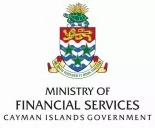Speaking recently before the European Parliament's TAXE2 Committee, Minister of Financial Services Wayne Panton outlined how the Cayman Islands financial services industry supports the global economy, and the number of extensive mechanisms through which Cayman collaborates with other countries in international tax matters.
Minister Panton addressed the committee on 18 April, following an invitation by its members to discuss 'the specific features of your corporate tax system and recent developments both at EU and OECD levels in relation to the issues of tax avoidance, exchange of information and base erosion and profit shifting (BEPS)'.
'The meeting gave Cayman a remarkable opportunity to define key features of our economic model for European Union lawmakers', Minister Panton said. 'In particular we explained how our consumption-based tax model ably supports our public finances, and how our mechanisms support the rights of other countries to be able to enforce their tax laws'.
Minister Panton thanked the Ministry staff, and financial services industry association Cayman Finance, for their assistance in preparing for the meeting. He was accompanied to the meeting, which was held in Brussels, by the Director of the Department for Financial Services Policy and Legislation, Michelle Bahadur; and the Director of the Department for International Tax Cooperation, Duncan Nicol.
The TAXE2 committee was established by the European Parliament in December 2015, for a six-month timeframe. At the European and international level, the committee focuses on harmful corporate tax regimes with the aim of fighting tax evasion and aggressive tax planning, notably by increasing transparency and cooperation between governments and between national parliaments.
UK Crown Dependencies Jersey and Guernsey; Overseas Territories Bermuda and Gibraltar; as well as Andorra, Lichtenstein and Monaco, also have addressed the committee, on similar subjects.
TAXE2 Committee Coordinators' Meeting Opening Statement by the Hon. G. Wayne Panton, Minister of Financial Services, Commerce and Environment
Monday, 18 April 2016, 18.30-20:30 | Meeting room Jozsef Antall (JAN) 4Q2, Brussels
Thank you Mr Chair, and members of the TAXE2 Committee. I am Wayne Panton, Minister for Financial Services, Commerce and Environment in the Cayman Islands Government.
I am pleased to engage in dialogue with you on matters of mutual importance to all our jurisdictions, and to familiarise you with the Cayman Islands and our approach to collaboration in international tax matters.
The Cayman Islands does not have a direct tax system. It follows that we do not have a corporate tax system. There is no direct taxation in relation to income, profits, or capital gains. There also is no taxation in relation to payment of dividends, or capital gains on redemption, or sale of shares.
Cayman has always operated an indirect or consumption based tax system, which enables us to adequately sustain our public finances. Government revenue is broadly comprised of government fees and taxes in relation to products and services, import and customs duties, and stamp duties.
While tax neutrality is undoubtedly a part of the rationale behind the prevalent use of Cayman Islands structures, it is a small part. Neutrality itself can be achieved even in an onshore context. Rather, Cayman is a jurisdiction of choice for institutional business, for many other reasons. We provide cost effective flexible platforms, which have been tried and tested, to facilitate international business in the context of complex regulatory, securities and tax rules relevant to different investors, banks, management firms and other stakeholders. Well developed and recognised legal concepts including those in relation to security over property and rights, advice and services by a deep bench of professional advisors and familiarity by investors, onshore service providers, rating agencies and clients are all key elements as well.
Bringing together investors and investment opportunities through a Cayman Islands platform facilitates global investment and trade. This benefits both developed and developing countries. It can include equities, national and corporate debt, corporate turn-arounds, mobile equipment and infrastructure projects. We think that this helps to grow the tax base, create jobs and improve the quality of life of countries and citizens around the world.
For reasons such as these we have been engaged for some time with the European Securities and Markets Authority, ESMA, in respect of the third country passporting mechanism under the Alternative Investment Fund Managers Directive. This will facilitate the continuation of investment opportunities by European investors and the management of funds by EU based fund managers. Through our discussions with ESMA we are finalizing regulations under our Mutual Funds Law to support a recommendation by ESMA to the Commission.
One of the reasons efficiencies are achieved though Cayman vehicles and structures is that Cayman does not impose an additional layer of taxation, which does not affect the amount of taxation that is collected by the home jurisdictions of these investors. We also do not have exchange controls, which allows the capital pooled in Cayman to freely flow around the world, to benefit investors and the jurisdictions in which the vehicles invest. Taxes are paid on the profits made in accordance with the laws of those jurisdictions. Furthermore, each investor is responsible for its tax liability on gains, again in accordance with the laws of its home jurisdiction.
In relation to tax regimes, it is the sovereign right for each jurisdiction to set its own tax rates, according to its own requirements. Moreover, collaboration among jurisdictions is critical, to ensure that each is able to properly administer its own tax laws.
Through our collaboration with other jurisdictions, Cayman is committed to international tax compliance. In fact, in recognition of our engagement, Cayman has been a member of the Steering Group and the Peer Review Group since 2009 and is currently one of the vice chairs of the Peer Review Group of the Global Forum on Transparency and Exchange of Information for Tax Purposes.
I note that Cayman has fully implemented the international standards on exchange of information on request for tax purposes. We made an advance commitment to the OECD in 2000 and signed our first tax information exchange agreement, or TIEA, with the United States in 2001. We have continued our engagement in this area and now have signed a total of 35 TIEAs and one double taxation arrangement with the UK.
In addition, in January 2014 the Multilateral Convention on Mutual Administrative Assistance in Tax Matters was extended to the Cayman Islands at our request, and in all, we now have in excess of 90 exchange of information relationships.
Furthermore, since 2005 Cayman has been automatically providing information to all EU Member States for the purposes of the EU Directive on the Taxation of Savings Income. We have done this since inception, and did not opt for a withholding tax mechanism which is a further indication of our commitment to transparency.
Our experience with automatic exchange of information, or AEOI, allowed us to swiftly engage with the US on their Foreign Account Tax Compliance Act and indeed, we were one of the first jurisdictions to negotiate an intergovernmental agreement with the United States. We also have a similar Intergovernmental agreement with the UK to improve international tax compliance.
Beyond this, we were supportive of the G5 pilot as an early adopter of the new global standard for AEOI for tax purposes. Our domestic legislation has been in place since 2015 and we will undertake the first automatic exchange of information under the Common Reporting Standard in 2017, which is the same timeframe as EU Member States. We have been an active participant in the Global Forum's AEOI Working Group to ensure that all committed jurisdictions are swiftly and properly implementing the standard.
Allow me to point out that, since we do not have a direct tax system, Cayman therefore is a non-reciprocal jurisdiction. In other words we provide information to partner jurisdictions, whether developing or developed, without requiring information in return. This has a cost to us which we choose to bear because we respect the right of other countries to be able to enforce their tax laws. It is important to us to maintain our strong reputation as a responsible partner in the global financial arena.
Moreover, for more than 20 years Cayman has been active in international efforts in the fight against financial and other serious crimes, including the targeting of terrorist financing and proliferation. We adhere to the FATF Recommendations and subscribe to the G20 High Level Principles on Beneficial Ownership. In fact Cayman has collected and verified beneficial ownership information for 15 years. In addition, last week we announced the signing of an agreement with the UK on the enhanced sharing of beneficial ownership information.
In relation to BEPS, we are monitoring and consulting on how Cayman can ensure that we support the principles of the BEPS work, including country by country reporting and harmful tax practices. Our current analysis does not indicate that we have major activity in this area, given the core of Cayman's business and the absence of a direct tax system.
Colleagues, the matters of corporate tax systems, tax avoidance, exchange of information, and BEPS are worth discussing on a global level, as well as in such fora as this. In order to be effective in improving international tax compliance, we first must take the time to understand each other's context, and then collaborate in our endeavours to ensure that each of our countries, and our people, enjoy the full benefits of citizenship. For our part, the Cayman Islands will continue to partner with all countries that make firm commitments to global standards in this area, and we will continue to actively participate in the global discussions to further strengthen these standards.
The content of this article is intended to provide a general guide to the subject matter. Specialist advice should be sought about your specific circumstances.

